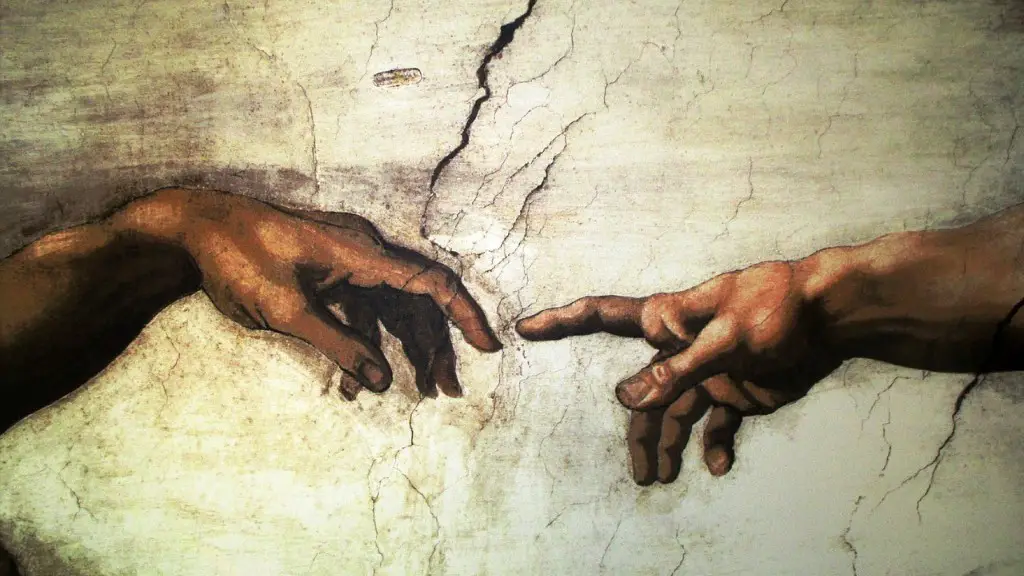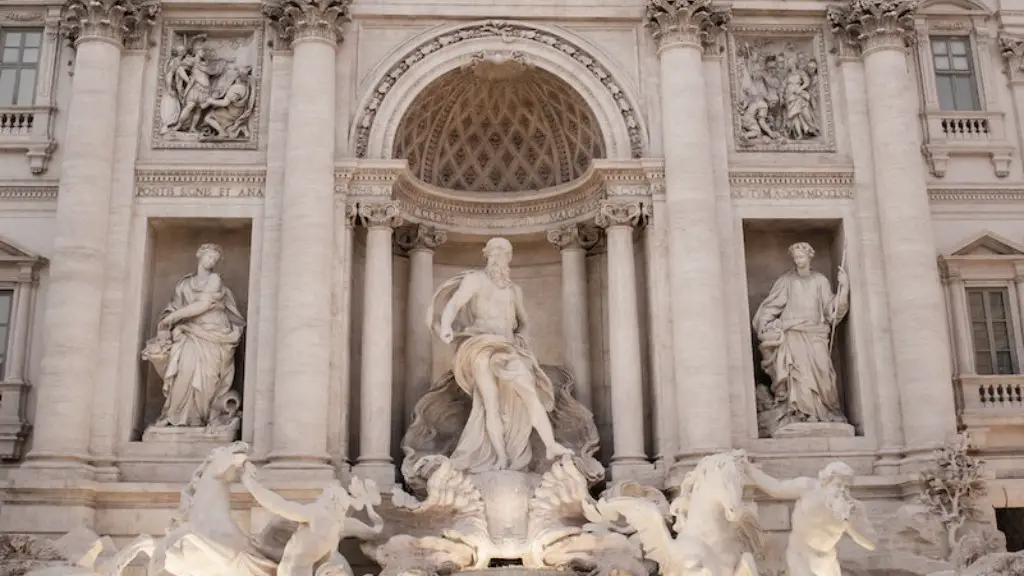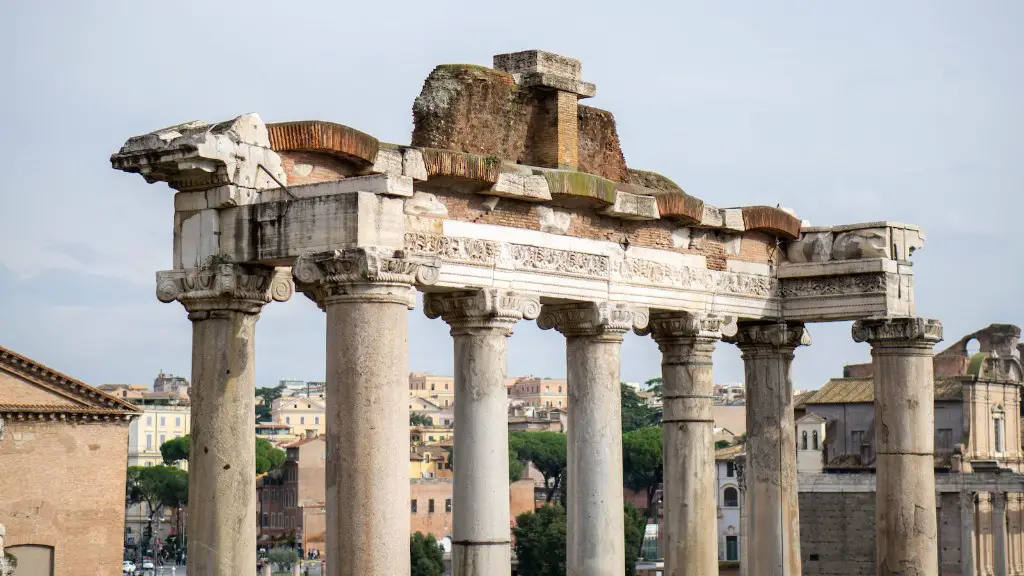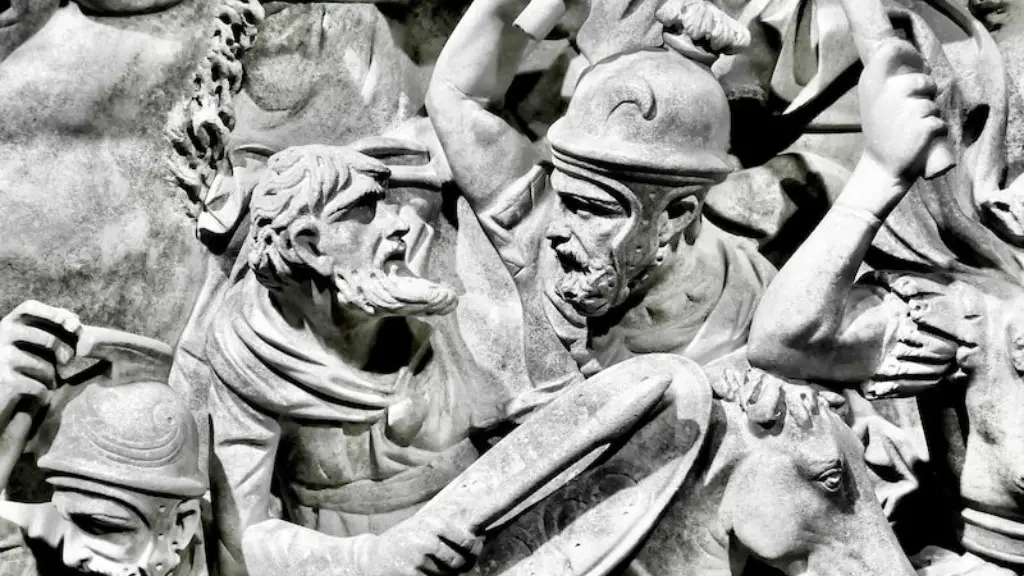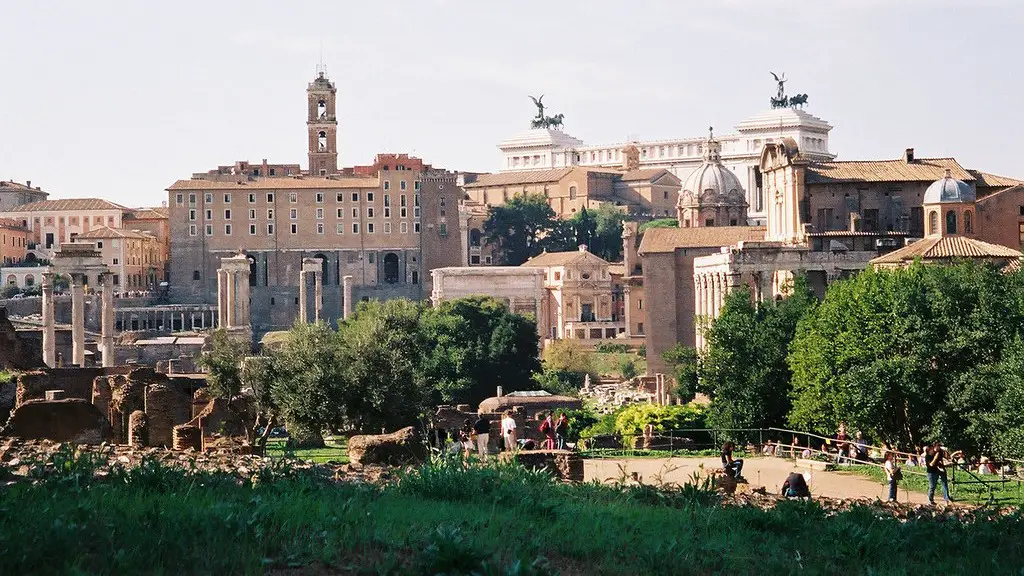Origin of Ancient Roman Religion
Ancient Rome was the birthplace of many religions, such as Christianity and Judaism. Before this, the Latin-speaking people of Rome practiced a polytheistic religion. This religion is known as ancient Roman religion, a complex set of religious beliefs and practices based around the core of gods and goddesses within the Roman pantheon.
The origin of ancient Roman religion can be traced back to the Etruscans. These were a set of people that inhabited northern Italy and the region around Rome prior to the city’s foundation in 753 BC. These inhabitants had a set of beliefs based on the worship of natural forces like storms, fertility, and the seasons. It is from these beliefs that the core of ancient Roman religion evolved.
When the Latin-speaking people of Rome migrated to the area, they fused the Etruscan beliefs with their own. This created the foundations for the religion of ancient Rome, with gods and goddesses such as Jupiter and Juno taking the main roles in the pantheon.
Religious Practices
Religion in ancient Rome was about much more than traditional belief. It was embedded in the very fabric of Roman society, and all of its citizens were expected to follow certain religious practices. This included prayer to the gods and goddesses, offering sacrifices such as animals and crops, and participating in festivals that celebrated the gods and goddesses.
The state religion was overseen by the priests of the College of Pontiffs. These priests held great power and prestige in Roman society, and they were the ones who determined which gods and goddesses were deemed worthy of worship. Additionally, they were in charge of interpreting omens and signs to determine the will of the gods.
Apart from the state religion, there were also other cults and mystery religions that sprang up. One of the most popular was that of Mithraism, which was based around ancient Persian gods and was primarily practiced by Roman soldiers. This religion was popular from the 2nd century BC until it was supplanted by Christianity.
Religion and Politics
Religion was intertwined with politics in ancient Rome. The city was seen as a sacred place, and the leaders of Rome were expected to revere and consult the gods in order to determine the best course of action. This led to many temples and sacrificial sites being built.
One of the most important religious figures in Rome was the Vestal Virgins. These women were tasked with the maintenance of the cult of Vesta, the goddess of the home. They were held in high esteem and were seen as a symbol of virtue and piety in Roman society.
The state religion was no respecter of persons, and even the leaders of Rome were expected to uphold the beliefs of the state religion. Julius Caesar himself boasted that he was descended from a god, and attempted to reform the calendar to reflect this belief. However, he was killed by senators before he could complete the reforms.
The Decline of Ancient Roman Religion
The decline of the religion of ancient Rome was caused by several factors. The primary one was the rise of Christianity, which provided a rival belief system that came to dominate the Roman Empire by the 4th century. Additionally, the Roman Empire was becoming increasingly fragmented and the decline in political unity meant that the religion of Rome also suffered.
Another factor in the decline of the religion was the rise of Stoicism and Epicureanism, philosophies that rejected the traditional gods and goddesses. These philosophies provided a better understanding of the world and spread quickly, leading to their adoption by many Romans.
Finally, the decline of the Roman Empire itself led to the decline of its religion. With the fall of Rome in the 5th century, the religion was supplanted by Christianity and began to slip into obscurity.
Legacy of Ancient Roman Religion
Despite its decline, the religion of ancient Rome still left an impression on the world. Its gods and goddesses are still remembered in the names of the days of the week, its language influences our own, and it set the stage for the many religious movements that followed.
For example, Christianity itself was heavily influenced by ancient Roman religion. From its emphasis on martyrdom to its belief in an afterlife, its teachings echo those of the ancient Romans.
The legacy of Rome continues today, with its religion becoming more visible through the retelling of its myths and the exploration of its cultural practices. It remains an important part of our history and its influence can be seen in the world around us.
Role of Mythology in Ancient Roman Religion
Mythology was an important element in the religion of ancient Rome. Myths about the gods and goddesses of Rome served as stories to explain the natural world, provide explanations for the actions of the gods, and to offer moral lessons for its people.
The primary source for Roman mythology was the poet Virgil, who wrote the Roman epic, the Aeneid. This poem recounted the journey of the Trojan prince Aeneas from Troy to Rome, and it provided the basis for many of the myths associated with Rome. Other important authors included Ovid and Pliny the Elder, who wrote about the natural world and its gods.
In addition to these works, there were also the rituals and sacrifices that Roman citizens performed in honor of the gods. They believed that these rituals, such as offerings at temples, would bring them favor from the gods.
These stories, rituals, and sacrifices were all integral parts of Roman culture and formed the basis of its religion. As such, they remain a key part of our understanding of the ancient Romans.
Conclusion of Ancient Roman Religion
The religion of ancient Rome had a deep and lasting influence on the world. Its gods and goddesses are still remembered today, its stories and rituals provide an insight into the culture of the time, and its legacy can be felt in many aspects of our own society.
From its roots in the Etruscan beliefs to its decline in the 5th century and its influence on Christianity, the religion of ancient Rome has left a lasting mark on the world. It is a testament to how powerful and influential ancient Rome was, and how it still has much to teach us today.
